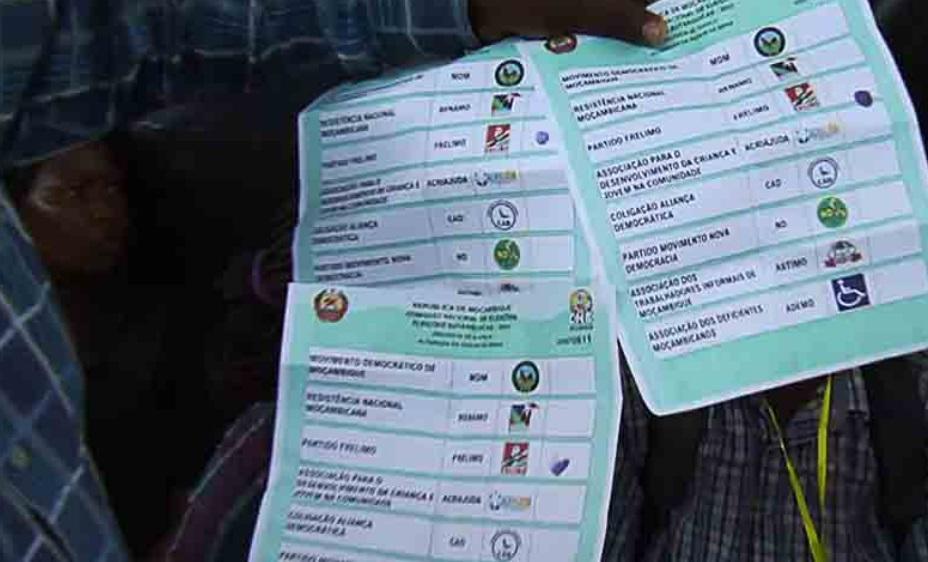Africa-Press – Mozambique. With reports of attempted fraud, unrest, delays and many other occurrences recorded in some municipalities in the early hours of voting yesterday, the Sala da Paz election observers platform continued to monitor and systematise incidents and relevant electoral information until the polls closed.
In a report shared with ‘Carta’, the group of civil society organisations with observers spread across the country reports that numerous votes in favour of Frelimo were captured, mainly in the cities of Beira , Quelimane and Nampula.
“In Marromeu, at the Julius Nyerere School, at table 050327/5, the President of the Polling Station, who is a teacher, was caught by the Renamo delegate with seven pre-makred ballot papers in favour of the Frelimo. After being discovered, the deputy fled. In the city of Beira, at the voting assembly table number 050017-01, at Escola Primária Eduardo Mondlane, a voter accredited as an Electoral Observer of the District Youth Council (CDJ) was caught during the voting process trying to enter numerous votes already filled in favour of Frelimo,” Sala da Paz reports.
In addition to Marromeu and the city of Beira, in the city of Nampula, Sala da Paz reported that an election observer, a professor at Rovuma University, was caught trying to insert previously marked ballots into the ballot box.
In the municipality of Quelimane, the platform also reported that an observer from the Provincial Youth Council (CPJ) of Zambézia was caught trying to introduce votes in favour of Frelimo at the EPC of Sinacura in Quelimane.
Sala da Paz details that the citizen in question is a professor at the Catholic University of Mozambique (UCM). The university rector’s office says it “became aware of allegations involving a member of its teaching staff in connection with possible irregularities in the local election”. The institution distances itself from the incident, calling “entirely the responsibility of the citizen, and not reflecting the official and institutional positioning of our University”.
Sala da Paz also reports that, on the Eduardo Mondlane University Campus in Maputo, at table number 010038, a voter spent more than 10 minutes in the voting booth, the vice-president of the board having finally to intervene to secure their departure.
“In Maputo, at the Chamanculo Community School, at table 010068-01, an observer from the Youth Office of the Islamic Council of Mozambique (CISLAMO), accredited by the National Youth Council (CNJ), was attacked by a STAE supervisor for taking notes in a notebook. On that occasion, the Director of STAE gave express orders to those present for the observer to leave the place,” the Sala da Paz report also reads.
The observers’ consortium also noted that, in the hours before voting closed, there was increased police security at polling stations, creating an environment of tension, especially in Beira.
Meanwhile, with regard to the end of the voting process, Sala da Paz reporters found waiting voters in almost all municipalities just hours before the scheduled 6:00 p.m. end of voting.
“Of the tables observed, all over the country, around 80% closed at the stipulated time (6:00 p.m.). The existence of voters who were still queuing to exercise their civic rights led to the closure of 20% of polling stations. By 6:40 p.m., all tables were closed. There were cases of voters arriving after the tables had closed, specifically in Maputo, George Dimitrov School (table 01027904) and, in Nampula, EPC Namicopo B (table 090223-01)”, reads the platform’s report.
Up until closing, Sala da Paz observers were reporting power cuts in some polling stations, with greater incidence in Maputo, Quelimane and Nampula.
In the case of Nampula, the platform highlights eight tables in Belenenses which did not have back-up lighting. The same was true in Napipine, also in Nampula, where there was no electricity in the early hours of the morning.
Sala da Paz maintains that lack of electricity could affect the course of voting and the tabulation of results at the table, including compromising the transparency of the process.
video
Facebook Post click here
Facebook Post click here
For More News And Analysis About Mozambique Follow Africa-Press






